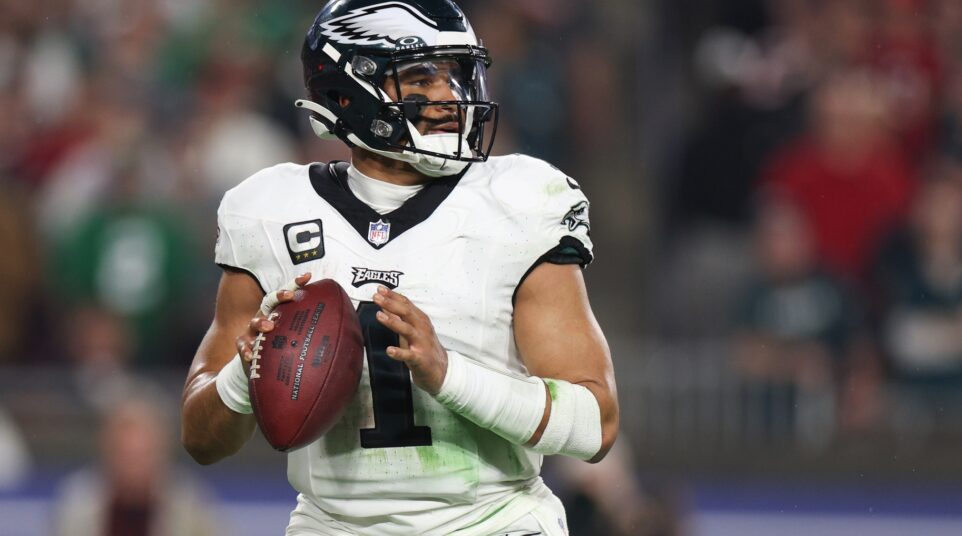
Markelle Fultz Posted About Anxiety
In a life full of regrets, one of my greatest is that somehow I am still following Darren Rovell on Twitter. Some of the stuff he vomits up on his feed is so banal it makes me want to bail on him:
Jordan Spieth began the day in line for the $1.87 million prize.
His check will end up being around $215,000.
— Darren Rovell (@darrenrovell) July 22, 2018
Wait, so the guy who blew the lead at the British Open and didn’t win the tournament didn’t get the winner’s check? You’re kidding! Also, Spieth is worth over $40 million. Losing that million and a half — that he never really had — isn’t a story.
Still, sometimes, even a diseased tree bears fruit. Scrolling through Twitter last night I saw this:
Yes @MarkelleF, I will share this on my feed. My followers, will some of you do the same? 2018 is the year. The perception of how we define mental health will finally change and we will lift up everyone together. pic.twitter.com/6JziTHBax1
— Darren Rovell (@darrenrovell) July 24, 2018
Wait…what?
Sure enough, while this is a pseudo-inspirational thing that looks like it belongs on your skittish aunt’s Facebook page, it is still as of this writing prominently featured on Fultz’s Instagram.
The first thing to do here is some fact-checking. A blanket statement like “1 in 3 of us go through depression, anxiety or panic attacks at least once in our life” is one of those quasi-statistical statements that gets believed without much scrutiny because it sounds plausible.
And in fairness to whoever created that pop psychological chain letter above, the math does seem to check out, sort of.
Per Fortune magazine in October of 2017:
Here’s a deeper look at how mental health issues affect Americans:
- 6.9% (or 16 million) suffer from severe depression.
- 18.1% (or 42 million) live with an anxiety disorder.
The National Institute of Mental Health estimates that “4.7% of U.S. adults experience panic disorder at some time in their lives.” The total of 29.7% (6.9% plus 18.1% plus 4.7%) isn’t one in three, but it’s close enough.
With the fact-checking out of the way, it’s safe to start speculating recklessly about why this almost-accurate statistic is on Fultz’s Instagram page. OK, you’re right, it’s not safe to do that at all. But it is reasonable to ask questions.
Why post this now? Sixers fans everywhere have been pretty excited since reading this a few days ago:
Not to be too cryptic here, but I just talked to someone (who would know) who had very positive things to say about Markelle Fultz’s work this summer and the type of impact he’s going to have next season.
— Michael K-B (@therealmikekb) July 22, 2018
We don’t know the motivation or reason for Fultz posting this. But anyone who has dealt with these issues knows that depression, anxiety and panic attacks are not signs of weakness. When established NBA stars like Kevin Love and DeMar DeRozan came forward with their stories, it was no longer fair or logical to assume that stable mental and emotional health was a given for professional athletes.
The point here is that Fultz’s psychological fitness to play basketball has already been a story — and Sixers coach Brett Brown went on the record to say that there was no such problem.
As Matt Haughton reported for NBC Sports Philadelphia in January, ESPN’s Mark Jones said during that network’s broadcast of a Sixers/Thunder matchup that “Brett Brown was telling us prior to the game tonight, prior to tip, that he speaks with Fultz, he works with Fultz and there seems to be some psychosomatic issues involved with getting over the hump and getting back on the court.”
Brown did not take it well. He contacted ESPN, apparently demanded and got an apology, and denied ever having said what Jones attributed to him: “It was completely misquoted. There was no reference to any of that… I’ve spoken with ESPN this morning. They’re very apologetic.”
And now here we are.
Fultz’s Instagram post would be a non-story if it showed up on the feed of, say, Carson Wentz or Wayne Simmonds. Neither of them has missed extended periods of playing time for any reason other than physical injury.
On Fultz’s IG, though, it’s a story. It may end up being nothing once the season starts. Maybe Fultz is just concerned about a friend or family member dealing with mental health issues. Maybe he’s worried about Demi Lovato.
The point is, while we still search for answers as to why Fultz missed almost his entire rookie season, a curious Instagram post about anxiety seems at least noteworthy.




